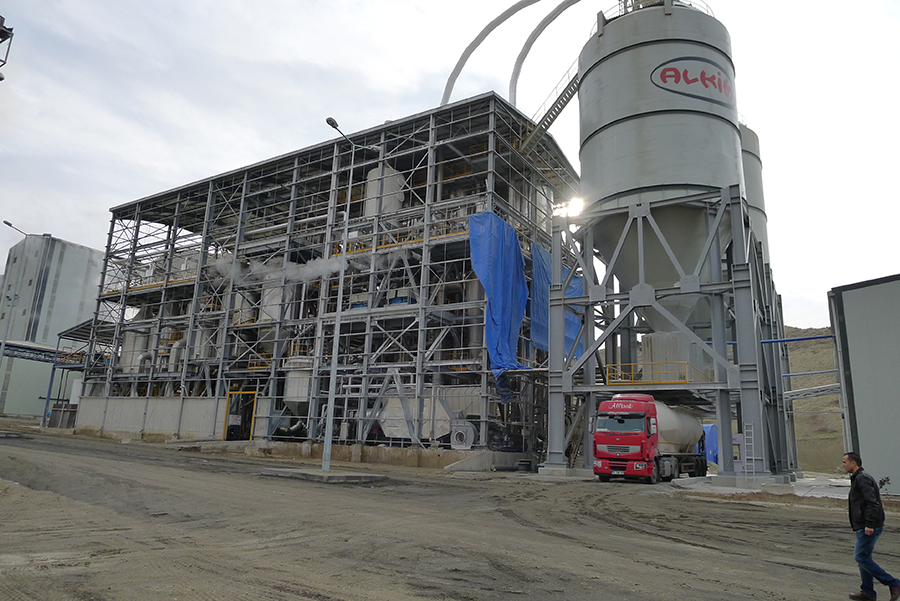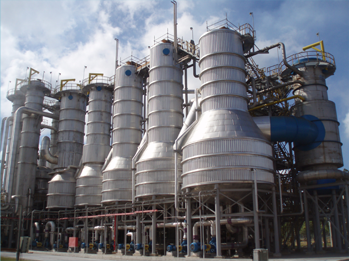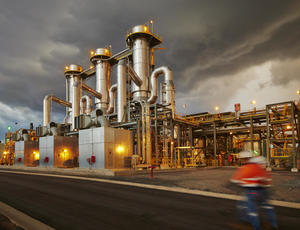Creating High-Purity SOP Utilizing HPD® Crystallization Technology
HPD® Crystallization systems from Veolia Water Technologies provide innovative process solutions for leading producers of fertilizer worldwide. These systems crystallize fertilizer products from natural sources or by-product streams from other processes. They offer flexibility to meet a wide range of production requirements guaranteeing crystal size and purity for potassium-based fertilizer products such as potassium chloride, potassium nitrate and potassium sulfate.
As the population increases, so does demand for crops. Unfortunately, some crops are sensitive to chloride, and traditional potassium fertilizers cannot be applied. As a result, high-quality water-soluble fertilizers are being utilized to ensure successful crop yields of these agricultural products, but the production of crystalline fertilizers, especially sulfate of potash (SOP), is a complex endeavor. It’s important that companies producing fertilizers partner with experienced technology firms that combine hands-on laboratory know-how with relevant industrial experience and robust project delivery.
Veolia’s HPD® crystallization technology is an effective process for the manufacture of high-quality water-soluble SOP utilizing a range of different feedstocks of varying quality such as sodium sulfate or other natural brines including polyhalite, schoenite and even kainite.
Ensuring Success Through Lab Feasibility and Piloting
The investment in an evaporation and crystallization process is large and a comprehensive feasibility and testing process should be considered. It’s imperative to perform bench or pilot-scale tests to confirm the design parameters using the actual feed solution expected for the commercial plant, or if not available, a synthetic solution based on the best available knowledge. Pilot capabilities provide a proving ground for each system during project development and identify potentially costly issues prior to commissioning.
At Veolia’s state-of-the-art evaporation and crystallization R&D facility located outside Chicago, a wide array of evaporators and crystallizers including ancillary equipment can be used to test and validate process solutions designed for commercial-stage production. This unique capability is an excellent tool for determining possible performance enhancements and evaluation of cost-effective approaches to the process.
Creative Options for SOP Production
Upgrading Potassium Chloride to SOP

Importing chloride-free fertilizer for crop production can be cost-prohibitive. To make SOP more affordable and locally available in Turkey, Turkish-based Alkim Alkali Kimya A.S. (Alkim), one of the largest sodium sulfate producers in the world, decided to invest in its Koralkim facility to produce up to 50,000 tons per year of soluble-grade SOP.
Alkim awarded Veolia a contract to supply HPD® crystallization technology to produce SOP in crystalline, fully soluble form. The multi-stage chemical reaction between potassium chloride and brine saturated with sulfate salts from Alkim’s existing operation takes place inside draft tube baffle crystallizers that promote the growth of highly-pure SOP crystals.
Veolia’s solution, which also includes multiple-effect crystallizers to produce almost 35,000 tons per year of food-grade sodium chloride as a by-product, optimizes capital investment by utilizing Alkim’s existing cogeneration units.
Producing SOP from Brine
North American crop nutrient and salt producer Compass Minerals needed to expand potassium sulfate (SOP) production at its plant in the USA. Veolia successfully integrated its HPD® PIC™ crystallizer unit into the existing plant. This converts a brine feed containing schoenite into a high-purity SOP product, marketed by Compass as Protassium+®. Veolia simulated before validating the design at its research facility. Veolia’s installed process, thanks to more efficient recycling, has also enabled Compass to significantly reduce water consumption, relative to the existing SOP plant.
Creating SOP from Pulp & Paper Wastewater

Another option is to manufacture SOP from the waste streams of pulp and paper mills. In this process, glaserite (a double salt of SOP and sodium sulfate) is initially recovered via a black liquor ash treatment system and then converted into high-quality SOP crystals for fertilizer use. Whatever the feedstock option, the crystallization process holds the key when it comes to controlling purity and size of the final SOP crystals.
At a pulping manufacturing facility in Brazil, the pulping production uses a washing process to increase the purity of the pulp. The resulting product is a liquid stream that is rich in organics for energy production. This liquor, however, requires the removal of chemicals to avoid the undesired build-up of chloride and potassium in the recovery cycle, which if left uncontrolled, can create corrosion and boiler fouling.
To prevent this fouling and corrosion, Veolia treats 650 tons per day of precipitator ash from the boiler using HPD® Enhanced Chloride Removal Process (ECRP™) crystallization technology. The ECRP™ technology allows for removal of impurities from the client process while taking a previous waste product and utilizing it to fertilize the next crop of trees for pulp production.
SOP for the Future
As the economy continues to become more ‘circular’ and companies look to minimize waste and invest in sustainable processes, there will be more opportunities that provide a win for both the bottom line and society.
Forward-looking producers can now seize higher-margin opportunities in the fast-growing agricultural market by producing specialty products utilizing previously unexploited feed stocks both profitably and sustainably by incorporating innovative processes such as HPD® crystallization technologies.
Contact us to discuss our HPD evaporation and crystallization technologies



